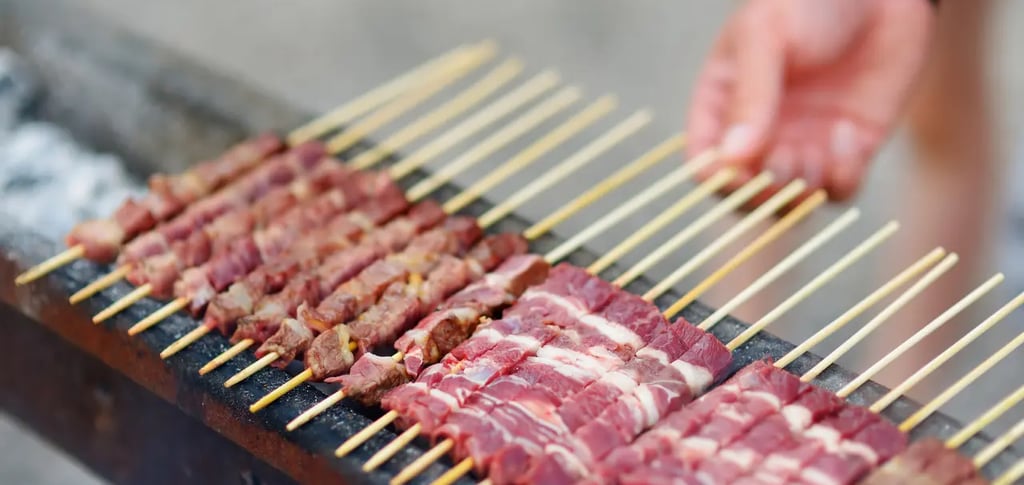Arrosticini: Abruzzo’s Skewered Bite of Smoky Perfection
Juicy lamb cubes grilled over charcoal, these rustic Abruzzese skewers turn simple meat, salt, and fire into an unforgettable taste of tradition.
ABRUZZOFOOD


Tender lamb cubes, threaded and grilled over hot coals—arrosticini are the heart of Abruzzo’s country cooking. Plain, smoky, and hugely satisfying, they’re the sort of food that transforms a casual gathering into a banquet. Try one and you’ll see why in central Italy they’re an institution.
History and Origins:
Arrosticini were created in the mountains and hills of Abruzzo, where shepherds spent the better part of their days herding flocks. Using the leaner cuts of mutton or lamb, they’d cube the meat, slip the pieces onto wooden skewers, and grill them over a small charcoal brazier known as a fornacella. This kept the meat moist and infused it with a distinctive smoky flavor. Once just a shepherd’s meal, arrosticini have become a symbol of Abruzzese identity, served at festivals, roadside grills, and family barbecues.
Ingredients and Preparation:
The classic recipe uses nothing but lamb or mutton, cut into tiny cubes and threaded tightly on thin wooden skewers. No marinade, no spices—just a sprinkle of salt after grilling. The fornacella is key: its long, narrow shape allows the skewers to cook evenly over direct heat without the sticks burning. Served piping hot, they’re often paired with thick-cut rustic bread drizzled in olive oil and a glass of Montepulciano d’Abruzzo wine.
Where to Try It:
In Pescara, Rosticceria La Pecora serves some of the best traditional arrosticini. In the mountain village of Castel del Monte, summer festivals often feature massive fornacelle lined with hundreds of skewers. Even in Rome, Abruzzo-style osterias like L’Abruzzese keep the tradition alive for homesick transplants.
With merely meat, salt, and flame, arrosticini show that perfection lies in simplicity. They’re more than food—they’re a bite of Abruzzo’s rural history, best enjoyed with friends under an open sky.
